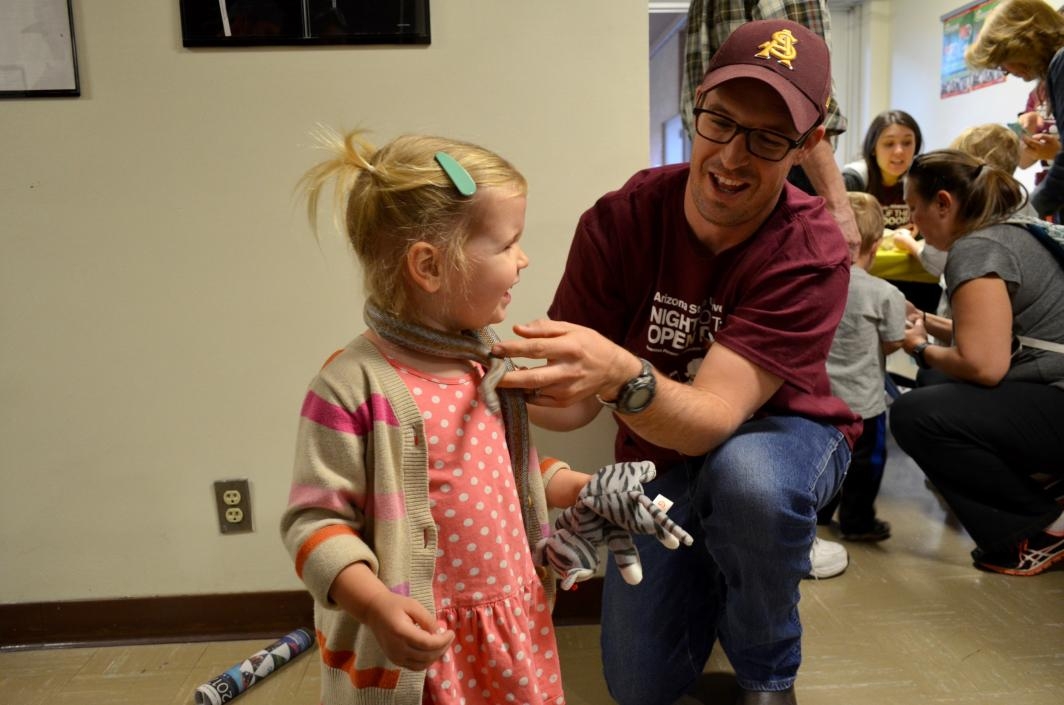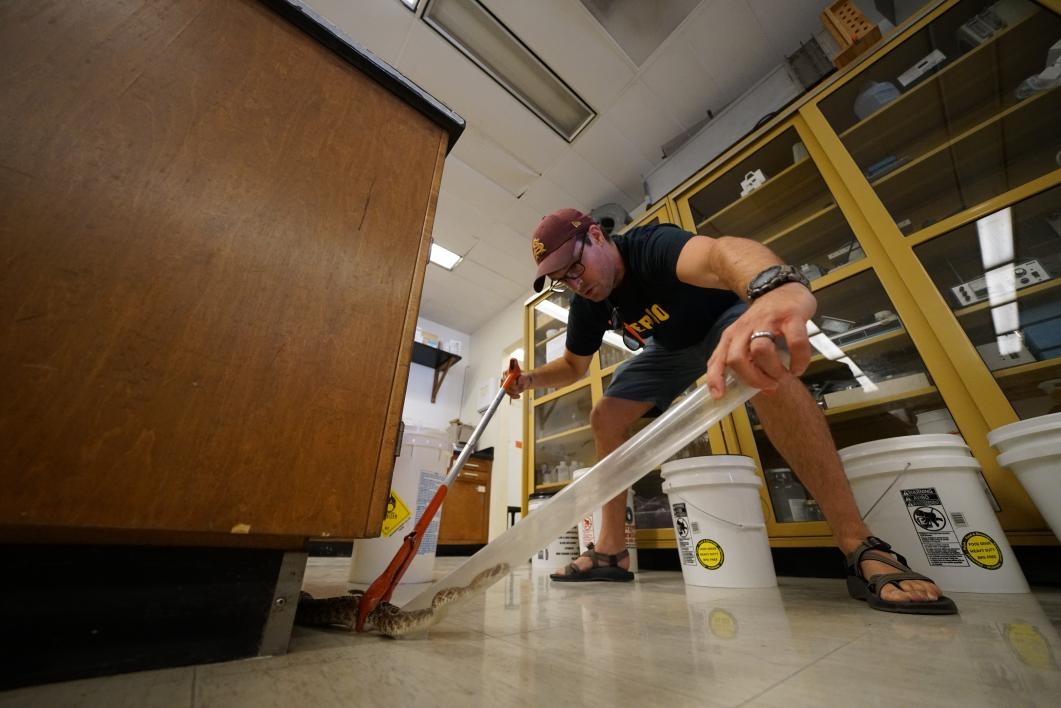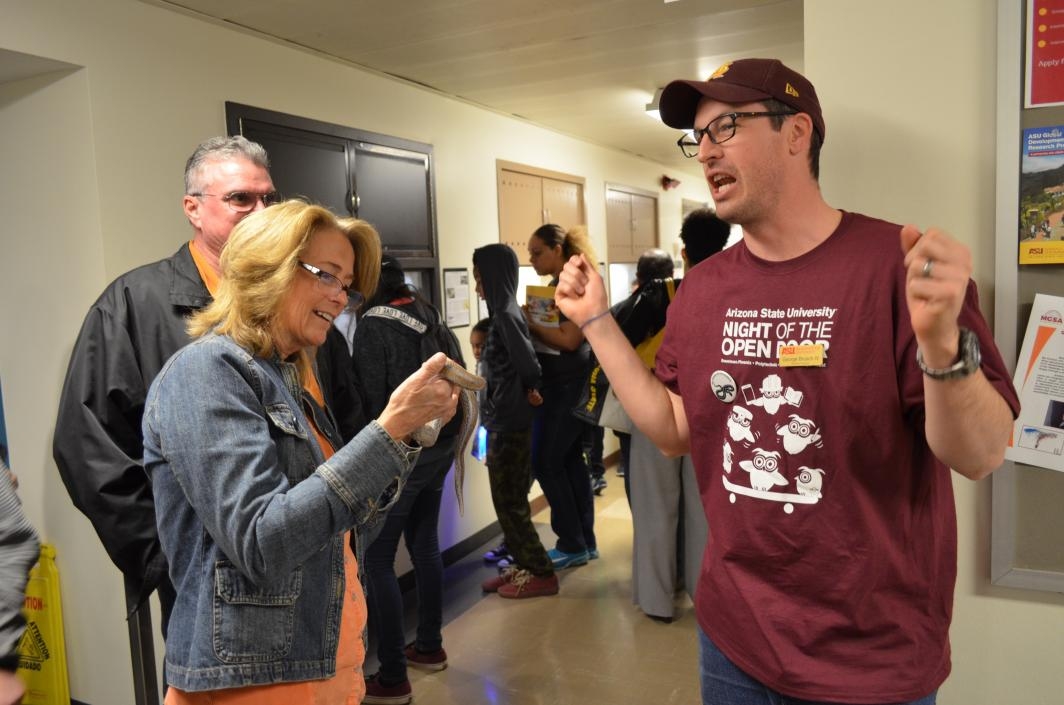First-generation college student defeats ‘imposter syndrome’ to earn biology PhD

George Brusch exploring France with his two daughters, Olivia (left) and Penelope. Brusch is currently doing his postdoctoral work in France.
Editor’s note: This is part of a series of profiles for spring 2019 commencement.
A first-generation college student, George Brusch remembers watching his parents work tirelessly at jobs for which they had no passion just to make ends meet.
Though Brusch knew he didn’t want that type of life, he also had no support system when he started an undergraduate degree program at California Polytechnic State University after high school. He had no passion for his studies and soon left college to return home.
But something was missing.
After working at a variety of jobs — everything from a landscaper to a truck driver — for six years, trying to find his place, he decided to return to Cal Poly. This time, something clicked.
Brusch discovered his passion. He fell in love with biology. And, just as importantly, he found a support system through the Louis Stokes Alliance for Minority Participation which seeks to promote participation in STEM by underrepresented groups.
“Joining the Louis Stokes Alliance helped me realize I wasn’t alone. I finally had a community I could turn to, who would listen and understand the struggles first-generation college students face,” Brusch said. “The pressure to drop out, move home and support our families was ever-present. As a group we supported, motivated and inspired each other.”
As a graduate student, Brusch earned his PhD in biology through the Arizona State University School of Life Sciences and has continued to advocate for underrepresented students in STEM fields, striving to create the kind of community for them that he originally found at Cal Poly.
Question: What’s something you learned while at ASU — in the classroom or otherwise — that surprised you, that changed your perspective?
Answer: My time at ASU has taught me the tremendous value of effectively communicating science to a wide audience, which was never something I had planned to focus on. Educating and involving the public through presentations, popular science writing, manuscripts, outreach efforts and my blog has also inspired me to continue to find new ways to communicate how truly amazing our world is.
ASU has inspired me to reach out to aspiring students from all backgrounds and teach them about the scientific method, encouraging them to ask their own questions, think critically and develop as scientists.
Q: Which professor taught you the most important lesson while at ASU?
A: I came to ASU for my adviser, Dr. Dale DeNardo. I had several offers from other schools who were trying to lure me away with fellowships or promises of exotic travel, but I knew in my gut that I was meant to work with Dale. I could not have asked, or even dreamed, of a better adviser for my PhD.
He allowed me to be independent, which meant making plenty of mistakes, but those errors allowed me to grow and learn. My undergraduate education taught me how to learn and my PhD taught me how to think like a scientist.
Dale showed me how to take my natural curiosity and direct it toward designing experiments, collecting meaningful data and telling a compelling story. I will be forever in debt for everything he has taught me and I will spend my career giving back to future students and trying to instill in them the same lessons and values that Dale was kind enough to give me.
Q: What’s the best piece of advice you’d give to those still in school?
A: I suffered from “imposter syndrome” pretty heavily when I first came to ASU. I felt like I did not belong and that, sooner or later, someone would figure out that I was not smart enough to be at a prestigious institution like ASU.
To any new student going through something similar, I would recommend that they reach out to their peers and share their feelings. Know that you are not alone! It took me too long to do the same, but I quickly found out that most everyone else admitted feeling the same way. For me, there was tremendous power in knowing that I did not have to suffer in silence and that most of us were in the same boat.
Q: What was your favorite spot on campus, whether for studying, meeting friends or just thinking about life?
A: There is a bench on the lawn just north of the life sciences building that was my ‘happy place.’ With a little shade it was perfect, regardless of the weather, for finding a little peace and quiet and taking a breather to refresh my mind.
Q: What are your plans after graduation?
A: I have accepted a postdoctoral scientist position in southwestern France with the Centre National de la Recherche Scientifique. I will be using my background in physiology to examine how temperature and water availability fluctuations as the result of climate change are impacting native European animals. I next plan to obtain a faculty position at a major research university, where I can teach, train and mentor the next generation while simultaneously conducting cutting-edge research.
Q: If someone gave you $40 million to solve one problem on our planet, what would you tackle?
A: Too many people on our planet still do not have access to clean drinking water which, to me, is a fundamental human right. I would invest this money into research to develop cheap, reliable filtration systems that could be widely distributed and prevent disease and needless mortality.
Q: Describe some challenges or hurdles you faced while earning your degree, and what you did or what took place to overcome them.
A: The most heartbreaking event during my time at ASU was our -80°C freezer shutting down – twice! The first time it happened I lost about two years’ worth of data, which was devastating. Luckily, I had analyzed enough of the samples to start writing manuscripts, and we restarted my projects. When it happened again about a year later, I was pretty close to giving up. I learned from these experiences that I am more resilient than I thought and that incidents like this are going to happen throughout my career.
To me, the most important thing is to remain centered, pull myself up by the bootstraps and try again. I also learned that there is no point in putting anything off because I can not guarantee that the option will be available tomorrow.
Q: What’s something you are most proud of during your time at ASU?
A: I am extremely proud of the work I’ve done to advocate on behalf of underrepresented groups. Throughout my tenure at ASU, I have made every effort to work diligently and make a lasting and impacting change for multiple groups and demographics, all respectively underrepresented. I have been able to work directly with, and for, women in science, first-generation college students, minority graduate students and ASU graduate and professional students.
Just as important, I’ve been able to work on a team with the Graduate and Professional Student Association as an assembly member and as a team leader as an executive and director, all with the goal of achieving maximum success. Another lasting impact will be felt on some of the individuals I have worked with, who have pledged to give back themselves thereby continuing a cycle of advocacy and mentorship.
More Science and technology

ASU-led space telescope is ready to fly
The Star Planet Activity Research CubeSat, or SPARCS, a small space telescope that will monitor the flares and sunspot activity…

ASU at the heart of the state's revitalized microelectronics industry
A stronger local economy, more reliable technology, and a future where our computers and devices do the impossible: that’s the…

Breakthrough copper alloy achieves unprecedented high-temperature performance
A team of researchers from Arizona State University, the U.S. Army Research Laboratory, Lehigh University and Louisiana State…




